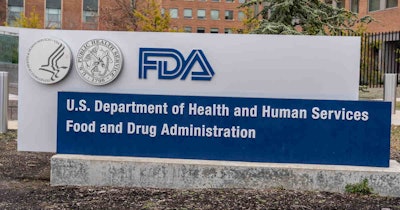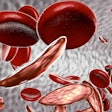
Plans to increase U.S. Food and Drug Administration (FDA) oversight of laboratory-developed tests (LDTs) have drawn a strong response, with trade groups pushing back against the proposal and more than 1,400 people and organizations submitting feedback to date.
The FDA published the proposed rule in late September, setting out plans to update the regulations so it is explicit that IVDs are regulated as devices regardless of whether the manufacturer is a laboratory. As part of the proposal, the FDA indicated its intent to gradually phase out its current general enforcement discretion approach to LDTs and thereby provide greater oversight of the tests.
AdvaMed, a trade group representing the medtech industry, published a statement on the day the FDA issued the proposed rule. The trade group was an advocate for the Verifying Accurate Leading-edge IVCT Development (VALID) Act, which would have created a new regulatory framework for diagnostics, though it failed to clear Congress. In its statement, AdvaMed said it is evaluating the FDA's proposed rule and that it supports the establishment of a “modernized, diagnostics-specific, risk-based regulatory framework for all in vitro clinical tests, regardless of where developed, and overseen by FDA.”
Zach Rothstein, executive director of the group’s diagnostic wing, AdvaMedDx, later told 360Dx that the industry organization remains focused on VALID because a lot of the main things it liked in the act, “like technological certification and how the risk-based approach works, would require an act of Congress.”
The American Clinical Laboratory Association (ACLA) also wants Congress to find a solution for LDTs. On the day the FDA published the proposed rule, the trade group said it planned to urge the FDA to withdraw its proposal and resume work toward legislation that provides a framework for LDTs.
AdvaMed and other bodies have a chance to submit formal feedback on the FDA’s proposed rule. So far, the FDA has received more than 1,400 comments but little input from industry groups, which still have time to submit their feedback.
The American Association of Bioanalysts and the National Independent Laboratory Association are among the groups to submit feedback. However, the comment, which was sent within two weeks of the rule's release, only asks for an extension to the comment period so that the organization's can give “substantive feedback that reflects the perspectives of stakeholders, ensuring that final versions of these rules are fit for purpose.”
Multiple individual members of “the laboratory medicine community” have since submitted requests for a 60-day extension to the comment period. The requests feature the same text that states more time is needed to stop the imposition of requirements that “are unfamiliar to most laboratories” from having “unintended consequences.” The FDA has said that it will keep the original deadline for feedback.
The alternative medicine sector has also rallied individuals to inundate the FDA with identical comments that are critical of the plan to regulate LDTs. The Alliance for Natural Health USA provided a prefilled form to enable people to comment on the proposed rule; many of the comments submitted to date copy the text exactly. The comments accuse the FDA of trying to “impose unnecessary regulations on LDTs.”
Representatives of clinical laboratories and test developers may have other concerns, with the proposal raising questions about how the FDA will cope with the burden of LDT oversight and failing to create the new regulatory framework outlined in the VALID Act. A fuller picture of attitudes to the proposed rule will emerge as more organizations submit feedback ahead of the deadline on December 4.



















